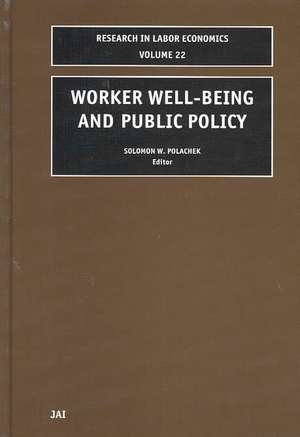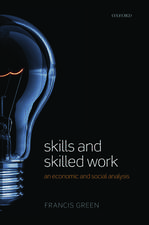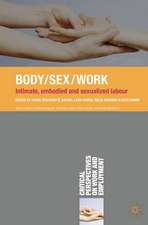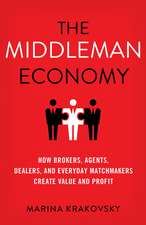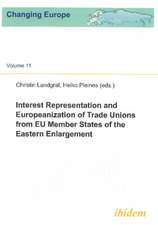Worker Well–Being and Public Policy: Research in Labor Economics
Autor Solomon W. Polacheken Limba Engleză Hardback – 19 iun 2003
Din seria Research in Labor Economics
-
 Preț: 428.57 lei
Preț: 428.57 lei - 9%
 Preț: 695.96 lei
Preț: 695.96 lei - 21%
 Preț: 518.75 lei
Preț: 518.75 lei - 23%
 Preț: 1239.12 lei
Preț: 1239.12 lei - 23%
 Preț: 784.25 lei
Preț: 784.25 lei - 23%
 Preț: 892.21 lei
Preț: 892.21 lei - 23%
 Preț: 997.57 lei
Preț: 997.57 lei - 23%
 Preț: 863.58 lei
Preț: 863.58 lei - 23%
 Preț: 1131.46 lei
Preț: 1131.46 lei - 23%
 Preț: 997.87 lei
Preț: 997.87 lei - 23%
 Preț: 1262.06 lei
Preț: 1262.06 lei - 23%
 Preț: 1062.55 lei
Preț: 1062.55 lei - 23%
 Preț: 991.66 lei
Preț: 991.66 lei - 23%
 Preț: 1037.26 lei
Preț: 1037.26 lei - 23%
 Preț: 1071.11 lei
Preț: 1071.11 lei - 23%
 Preț: 1070.40 lei
Preț: 1070.40 lei - 23%
 Preț: 1394.88 lei
Preț: 1394.88 lei - 23%
 Preț: 1067.42 lei
Preț: 1067.42 lei - 23%
 Preț: 1070.40 lei
Preț: 1070.40 lei - 23%
 Preț: 921.48 lei
Preț: 921.48 lei - 23%
 Preț: 949.94 lei
Preț: 949.94 lei - 23%
 Preț: 1026.78 lei
Preț: 1026.78 lei - 23%
 Preț: 896.93 lei
Preț: 896.93 lei - 23%
 Preț: 854.50 lei
Preț: 854.50 lei - 23%
 Preț: 906.56 lei
Preț: 906.56 lei - 23%
 Preț: 832.16 lei
Preț: 832.16 lei - 23%
 Preț: 799.01 lei
Preț: 799.01 lei - 23%
 Preț: 859.35 lei
Preț: 859.35 lei - 23%
 Preț: 946.52 lei
Preț: 946.52 lei
Preț: 1222.60 lei
Preț vechi: 1587.79 lei
-23% Nou
Puncte Express: 1834
Preț estimativ în valută:
233.94€ • 244.91$ • 193.57£
233.94€ • 244.91$ • 193.57£
Carte tipărită la comandă
Livrare economică 07-21 aprilie
Preluare comenzi: 021 569.72.76
Specificații
ISBN-13: 9780762310265
ISBN-10: 076231026X
Pagini: 524
Dimensiuni: 150 x 225 x 914 mm
Greutate: 0.95 kg
Editura: Emerald Publishing
Seria Research in Labor Economics
ISBN-10: 076231026X
Pagini: 524
Dimensiuni: 150 x 225 x 914 mm
Greutate: 0.95 kg
Editura: Emerald Publishing
Seria Research in Labor Economics
Cuprins
List of contributors. Preface (S.W. Polachek). Accounting for income inequality and its change: A new method, with applications to the distribution of earnings in the United States (G.S. Fields). The relationship between the economy and the welfare caseload: A dynamic approach (S. Haider et al.). New Jersey's family cap and family size decisions: Findings from a five-year evaluation (M.J. Camasso et al.). Tracking the household income of SSDI and SSI applicants (J. Bound et al.). Minimum wages and on-the-job training (D. Acemoglu, J.-S. Pischke). Racial and ethnic difference in pension wealth (W.E. Even, D.A. Macpherson). Count-level estimates of the employment prospects of low-skill workers (D.C. Ribar). Determinants of immigrant selectivity and skills (M. Zavodny). Immigration and the labor force participation of low-skill native workers (H. Johannsson et al.). Children, nondiscriminatory provision of fringe benefits and household labor market decisions (M.C. Berger et al.). Wage gains from better health and employment-based health insurance (P. Fronstin et al.). The family gap in pay: Evidence from seven industrialized countries (S. Harkness, J. Waldfogel). Why choose women's work if it pays less? A structural model of occupational choice (M.M. Pitts). New evidence on culture and the gender wage gap: A comparison across ethnic origin groups (H. Antecol). Gender differences in reasons for job mobility intentions in higher education (J. Van Gilder et al.).
